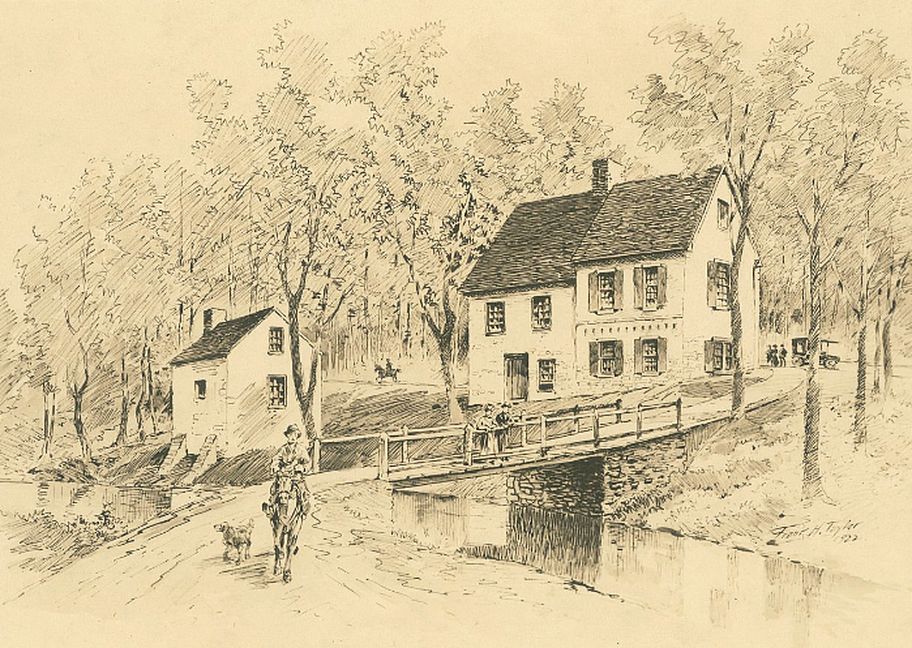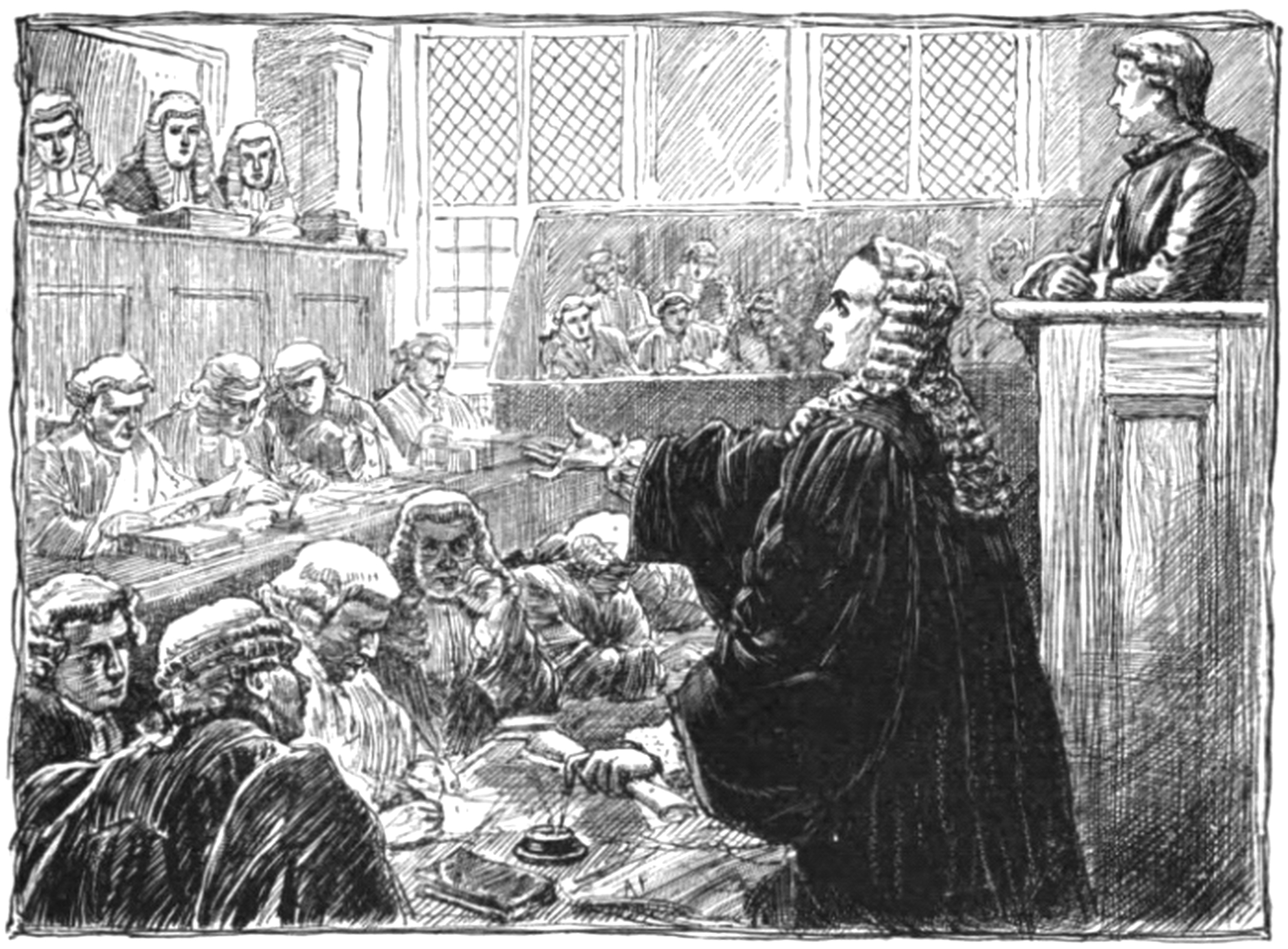|
New-York Gazette
The ''New-York Gazette'' (1725–1744) was the first newspaper published by William Bradford in the Province of New York. History The paper was founded by printer William Bradford in 1725. Though it was first, it was not distinguished. Historian Frank Luther Mott has described the paper as a "small two-page paper, poorly printed, and containing chiefly foreign news from three to six months old, state papers, lists of ships entered and cleared, and a few advertisements." Bradford had been a printer in Philadelphia, and he was induced to move to New York in 1693 to become the public printer. He was in his 60s when he first issued the weekly ''Gazette'' in early November 1725,Lee, James MelvinHistory of American Journalism pp. 36-39 (1917) (some sources claim the ''Gazette'' began publication in October 1725, and although there are no extant copies of the earliest issues, Lee points to later references in the paper which reflect that it began publishing in November 1725) and ... [...More Info...] [...Related Items...] OR: [Wikipedia] [Google] [Baidu] |
Newspaper
A newspaper is a periodical publication containing written information about current events and is often typed in black ink with a white or gray background. Newspapers can cover a wide variety of fields such as politics, business, sports and art, and often include materials such as opinion columns, weather forecasts, reviews of local services, obituaries, birth notices, crosswords, editorial cartoons, comic strips, and advice columns. Most newspapers are businesses, and they pay their expenses with a mixture of subscription revenue, newsstand sales, and advertising revenue. The journalism organizations that publish newspapers are themselves often metonymically called newspapers. Newspapers have traditionally been published in print (usually on cheap, low-grade paper called newsprint). However, today most newspapers are also published on websites as online newspapers, and some have even abandoned their print versions entirely. Newspapers developed in the 1 ... [...More Info...] [...Related Items...] OR: [Wikipedia] [Google] [Baidu] |
William Rittenhouse
William Rittenhouse (1644 – 1708) was an American papermaker and businessman. He served as an apprentice papermaker in the Netherlands and, after moving to the Pennsylvania Colony, established the first paper mill in the North American colonies, helping to meet the growing demand for paper among the Early American publishers and printers. Rittenhouse was also the first Mennonite bishop in America. Along with his two sons, and their descendants, the Rittenhouse family maintained a papermaking business in Pennsylvania for well over one hundred years. The site of the original mill is now preserved as the Historic RittenhouseTown district of Philadelphia. Early life William Rittenhouse was born Wilhelm Rettinghaus or Rittinghaus, on February 18, 1644, in the small village of Broich, just outside of Mülheim on the Ruhr River in the Ruhr region of Germany. He was the son of Claus Rittinghausen and Maria Hagerhoff. He belonged to a distinguished family of which various members ... [...More Info...] [...Related Items...] OR: [Wikipedia] [Google] [Baidu] |
1725 Establishments In The Thirteen Colonies
Seventeen or 17 may refer to: * 17 (number), the natural number following 16 and preceding 18 * one of the years 17 BC, AD 17, 1917, 2017 Literature Magazines * ''Seventeen'' (American magazine), an American magazine * ''Seventeen'' (Japanese magazine), a Japanese magazine Novels * ''Seventeen'' (Tarkington novel), a 1916 novel by Booth Tarkington *''Seventeen'' (''Sebuntiin''), a 1961 novel by Kenzaburō Ōe * ''Seventeen'' (Serafin novel), a 2004 novel by Shan Serafin Stage and screen Film * ''Seventeen'' (1916 film), an American silent comedy film *''Number Seventeen'', a 1932 film directed by Alfred Hitchcock * ''Seventeen'' (1940 film), an American comedy film *''Eric Soya's '17''' (Danish: ''Sytten''), a 1965 Danish comedy film * ''Seventeen'' (1985 film), a documentary film * ''17 Again'' (film), a 2009 film whose working title was ''17'' * ''Seventeen'' (2019 film), a Spanish drama film Television * ''Seventeen'' (TV drama), a 1994 UK dramatic short starring Christie ... [...More Info...] [...Related Items...] OR: [Wikipedia] [Google] [Baidu] |
Early American Publishers And Printers
Early American publishers and printers played a central role in the social, religious, political and commercial developments in colonial America, before, during, and after the American Revolution. Printing and publishing in the 17th and 18th centuries among the Thirteen Colonies of British North America first emerged as a result of religious enthusiasm and over the scarcity and subsequent great demand for bibles and other religious literature. By the mid-18th century, printing took on new proportions with the newspapers that began to emerge, most notably in Boston. When the British Crown began imposing new taxes, many of these newspapers became highly critical and outspoken about the British colonial government, which was widely considered unfair among the colonists. Schlesinger, 1935, p. 63. In the early years of colonial settlement communications between the various colonies, which were often hundreds of miles apart, usually consisted of dispatches, hand-written one at a ti ... [...More Info...] [...Related Items...] OR: [Wikipedia] [Google] [Baidu] |
Benjamin Franklin
Benjamin Franklin ( April 17, 1790) was an American polymath who was active as a writer, scientist, inventor An invention is a unique or novel device, method, composition, idea or process. An invention may be an improvement upon a machine, product, or process for increasing efficiency or lowering cost. It may also be an entirely new concept. If an ..., Statesman (politician), statesman, diplomat, printer (publishing), printer, publisher, and Political philosophy, political philosopher.#britannica, Encyclopædia Britannica, Wood, 2021 Among the leading intellectuals of his time, Franklin was one of the Founding Fathers of the United States, Founding Fathers of the United States, a Committee of Five, drafter and signer of the United States Declaration of Independence, and the first United States Postmaster General. As a scientist, he was a major figure in the American Enlightenment and the history of physics for his studies of electricity, and for charting and naming ... [...More Info...] [...Related Items...] OR: [Wikipedia] [Google] [Baidu] |
James Parker (publisher)
James Parker (1714 – July 2, 1770) was a colonial American printer, publisher, and postmaster. He published a wide variety of materials, including newspapers, government documents, magazines, and almanacs. He was a journalist in the provinces of New Jersey, New York, and Connecticut and owned several printing businesses in his lifetime. Parker worked closely with Benjamin Franklin in the printing trade, and Franklin even financed some of Parker's businesses as a silent partner. Parker was considered a better printer than William Bradford or Benjamin Franklin in the American Thirteen Colonies at the time. He established the first newspaper in the province of Connecticut and founded the first newspaper in New Jersey. He set up the first permanent print shop in province of New Jersey and was a printer for Yale College. Parker also was the general manager of the first public library organized in New York City. Early life Parker was born in 1714 in Woodbridge Township, ... [...More Info...] [...Related Items...] OR: [Wikipedia] [Google] [Baidu] |
New York Post
The ''New York Post'' (''NY Post'') is a conservative daily tabloid newspaper published in New York City. The ''Post'' also operates NYPost.com, the celebrity gossip site PageSix.com, and the entertainment site Decider.com. It was established in 1801 by Federalist and Founding Father Alexander Hamilton, and became a respected broadsheet in the 19th century under the name ''New York Evening Post''. Its most famous 19th-century editor was William Cullen Bryant. In the mid-20th century, the paper was owned by Dorothy Schiff, a devoted liberal, who developed its tabloid format. In 1976, Rupert Murdoch bought the ''Post'' for US$30.5 million. Since 1993, the ''Post'' has been owned by Murdoch's News Corp. Its distribution ranked 4th in the US in 2019. History 19th century The ''Post'' was founded by Alexander Hamilton with about US$10,000 () from a group of investors in the autumn of 1801 as the ''New-York Evening Post'', a broadsheet. Hamilton's co-investors included oth ... [...More Info...] [...Related Items...] OR: [Wikipedia] [Google] [Baidu] |
Frederic Hudson
Frederic Hudson (April 25, 1819 – October 21, 1875) was a leading 19th century American newspaper editor, working from 1838 to 1866 for ''New York Herald'', where he served as managing editor, and was influential in the development of American journalism. Biography Hudson was born in Quincy, Massachusetts, in 1819,The National cyclopaedia of American biography (Volume 11) p. 162 (1901)Heidler, David Stephen & Jeanne T. (eds. Encyclopedia of the American Civil War p. 1013-14 (2000) ()Wilson, Leslie Perrin (November/Decemb ... [...More Info...] [...Related Items...] OR: [Wikipedia] [Google] [Baidu] |
William Bradford (colonial Printer)
William or Bill Bradford may refer to: Arts and entertainment * William Bradford (painter) (1823–1892), American artist and Arctic explorer * William Bradford (architect) (1845–1919), British architect of breweries * William Bradford (cinematographer) (1905–1959), American cinematographer Military * William Bradford (Plymouth soldier) (1624–1703), military commander of Plymouth during King Philip's War; son of Governor Bradford * William Bradford (soldier, born 1771) (1771–1826), U.S. Army officer * William Bradford (general) (1896–1965), U.S. Army general and Olympic equestrian * Bill Bradford (British Army officer) (1912–1996), British Army officer in World War II Politics and law *William Bradford (governor) (1590–1657), English Governor of Plymouth Colony * William Bradford (Rhode Island politician) (1729–1808), U.S. Senator * William Bradford (Attorney General) (1755–1795), American lawyer and judge; second U.S. Attorney General *William G. Bradford (1925� ... [...More Info...] [...Related Items...] OR: [Wikipedia] [Google] [Baidu] |
Freedom Of The Press
Freedom of the press or freedom of the media is the fundamental principle that communication and expression through various media, including printed and electronic media, especially published materials, should be considered a right to be exercised freely. Such freedom implies the absence of interference from an overreaching state; its preservation may be sought through constitution or other legal protection and security. Without respect to governmental information, any government may distinguish which materials are public or protected from disclosure to the public. State materials are protected due to either one of two reasons: the classification of information as sensitive, classified or secret, or the relevance of the information to protecting the national interest. Many governments are also subject to " sunshine laws" or freedom of information legislation that are used to define the ambit of national interest and enable citizens to request access to government-held informat ... [...More Info...] [...Related Items...] OR: [Wikipedia] [Google] [Baidu] |
John Peter Zenger
John Peter Zenger (October 26, 1697 – July 28, 1746) was a German printer and journalist in New York City. Zenger printed ''The New York Weekly Journal''. He was accused of libel in 1734 by William Cosby, the royal governor of New York, but the jury acquitted Zenger, who became a symbol for freedom of the press. In 1733, Zenger began printing ''The New York Weekly Journal'', which voiced opinions critical of the colonial governor, William Cosby. On November 17, 1734, on Cosby's orders, the sheriff arrested Zenger. After a grand jury refused to indict him, the Attorney General Richard Bradley charged him with libel in August 1735. Zenger's lawyers, Andrew Hamilton and William Smith, Sr., successfully argued that truth is a defense against charges of libel. Early life Peter Zenger was born in 1697 in the German Palatinate. Most of the details of his early life are obscure. He was a son of Nicolaus Eberhard Zenger and his wife Johanna. His father was a school teacher in Impf ... [...More Info...] [...Related Items...] OR: [Wikipedia] [Google] [Baidu] |





